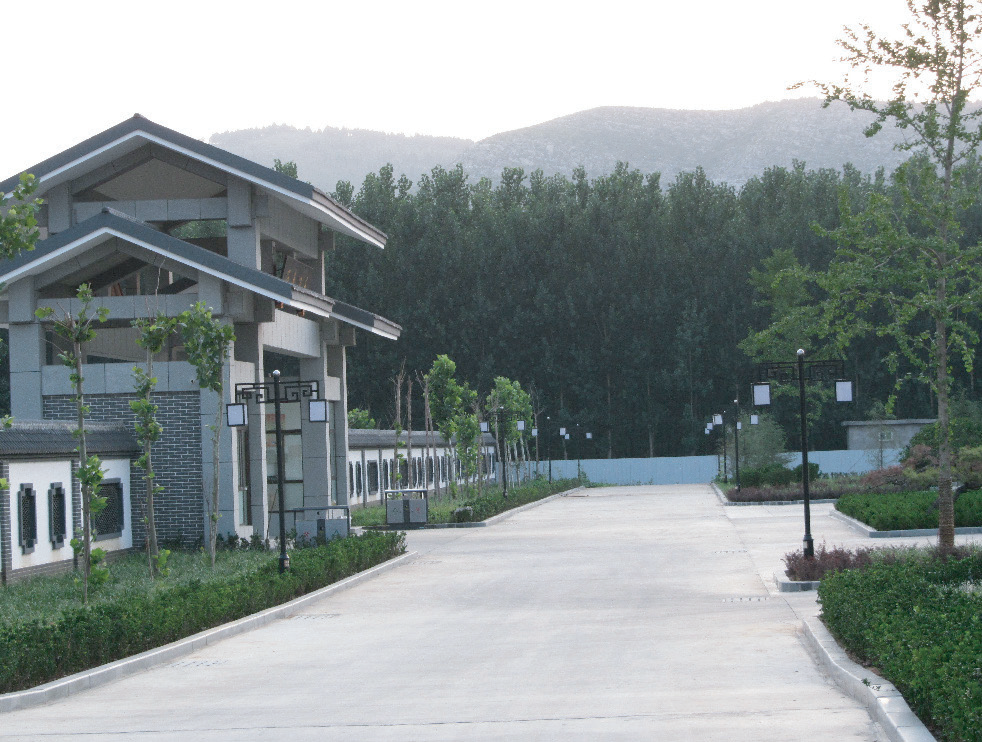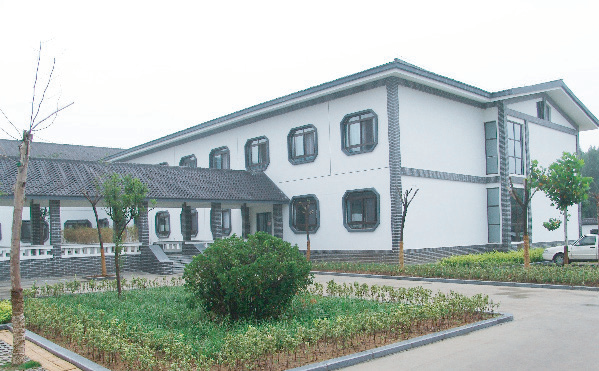I、Introduction & Purpose
The 2016 Nishan Confucian Studies Summer Institute International Program for Teachers of Chinese Culture is an invitation to spend a month reading the Confucian classics world-renowned experts Roger T. Ames, Chenshan Tian and other distinguished comparative philosophy and Confucian scholars at a newly established Confucian academy at the site of Confucius’s birthplace. The first three annual Summer Institutes, held in July 2011, June 2012 and July 2013 (in Beijing), as well as the two short-term workshops July 18-28, 2014 and December 6-12, 2015, were a great success.This has become an annual gathering of the brightest students and teachers from around the world. For one month in the summer of 2016, we will come back again to the birthplace of Confucius, Nishan, and students will again read Chinese classics . Let’s welcome students and teachers interested in Chinese culture to join us for this unique educational and research experience.
In the first decade of the 21st century, as a rising China has begun to be a strong presence in the world’s economic and political fields, what influence will this antique civilization exert on an emerging world culture? Anticipating the weight and measure of China’s growing influence has become a serious academic concern. To meet this urgent situation effectively, scholars must not only be aware of current affairs, but also be sensitized through being exposed canonical texts and their interpretive contexts to take Chinese culture on its own terms. The purpose of this program is to read such texts carefully and make them our own. But Chinese philosophy has too frequently been read and interpreted through a decidedly Western cultural lens, and has been theorized according to Western cultural assumptions. While Chinese culture has transformed dramatically over the centuries, there are persisting cosmological commitments that have given continuity and coherence to an evolving tradition. The challenge is to adopt a hermeneutical approach that allows us to excavate these uncommon assumptions that give the philosophical texts their context, and to appreciate the structural differences in a careful reading of the canons. An informed contrast must be struck between the more static and substantial metaphysical approach of classical Greek philosophy and the more fluid and dynamic assumptions that have influenced a tradition in which the Book of Changes has always been revered as first among the classics. The 20th century philosopher Tang Junyi takes the notion of “the inseparability of one and many” (yiduobufen guan) as one of the distinguishing propositions of Chinese natural cosmology— way of thinking about phenomena that stands in stark contrast with the “one behind the many” model of a classical Greek idealism that is grounded in the notion of an unchanging eidos as defining of natural kinds. What is a human “being”? This was a perennial Greek question asked in Plato’s Phaedo and Aristotle’s De Anima. And perhaps the most persistent answer from the time of Pythagoras was an ontological one: The “being” of a human being is a permanent, ready-made, and self-sufficient soul. And “know thyself”—he signature exhortation of Socrates—is to know this soul. Each of us is a person, and from conception, has the integrity of being a person. In what way does a person become consummately human? This was the perennial Confucian question asked explicitly in all of the Four Books: in the Great Learning, in the Analects of Confucius, in the Mencius, and again in the Zhongyong. And the answer from the time of Confucius was a moral, aesthetic, and ultimately one in terms of human-centered religiousness. One becomes human by cultivating those thick, intrinsic relations that constitute one’s initial conditions and that locate the trajectory of one’s life force within family, community, and cosmos. “Cultivate your person”—xiushen修身—the signature exhortation of the Confucian canons—is the ground of the Confucian project of becoming consummate as a person ( ren 仁): it is to cultivate one’s conduct assiduously as it is expressed through those interde pendent family, community, and cosmic roles and relations that one lives. In this Confucian tradition, we need each other. If there is only one person, there are no persons. Becoming consummate in our conduct ( 人/ 仁) is something that we do , and that we either do together, or not at all. In this Confucian understanding of a relationally constituted person, we are uniquely one and pluralistically many at the same time—each a uniquely focused person defined by a field of relations ( 一多不分). And thus for Confucians we are less human beings than human becomings. In appealing to an understanding of Chinese natural cosmology as the relevant interpretive context for this Confucian project, we will strive to provide a language that will distinguish this worldview from the reductive, single-ordered, “One-behind-themany ” ontological model that grounds classical Greek metaphysical thinking wherein one comes to “understand” the many by knowing retrospectively the foundational and causal ideal that lies behind them—n the case of human beings, understanding the notion of a discrete self or soul, and insisting that this individuality is what makes us distinctively human. Instead, we find that in Chinese cosmology there is a symbiotic and holistic focus-field model of order that is illustrated rather concisely in the organic, ecological sensibilities of theGreat Learning大學, the first of the Four Books that sets the Confucian project. As well, students will learn about China’s recent history and contemporary society. Understanding the present in light of the past, students will gain new perspectives on the modern world. Considering the global trends, understanding the dynamism of Chinese society is a great way for students to stay on the cutting edge of important scholarship and other opportunities. The 2016 Nishan Confucian Studies Summer Institute International Program for Teachers of Chinese Culture is, like those in the previous years, designed for both Chinese and international students and teachers of Chinese culture, literature, history and philosophy, but is also open to those who are equipped with other vocational or academic backgrounds. Chinese language ability is not necessary, but a basic familiarity with Chinese culture and classical texts is presupposed. The ability to communicate in Chinese is a highly valued skill in today’s world. The Summer Institute will provide optional classes in Mandarin Chinese at the beginning to intermediate level so that students can begin to enter into dialog with Chinese scholars, business people, and friends. All participants should have English language skills sufficient to follow and understand academic lectures. The program will accept twenty international participants and twenty from within China. The goal of the Summer Institute is to equip the participants with a comparative, hermeneutical approach to Chinese canonical texts that they can take home with them, and that they can apply to their teaching of Confucianism and Chinese culture to students with a western cultural background. In order to accomplish this goal, we will undertake a careful and detailed reading of the primary texts that will be sensitive to alternative world views and modalities of thinking, as well as to fundamental linguistic differences. This month-long training program will be led by professors Roger T. Ames (University of Hawaii) and Tian Chenshan (Beijing Foreign Studies University), with a special series of lectures by Gu Zhengkun (Peking University), Robin R. Wang (Loyola Marymount University), Hans-Georg Moeller (University of Macau), Li Chenyang (Nanyang Technological University, Singapore),Yao Xinzhong (Renmin University), Wen Haiming (Renmin University), Zhang Qi (Peking University), Jimmy Behuniak (Colby College), and Ian Sullivan (Seattle University). Our time together will revolve around readings of classical texts and contemporary commentaries, seminars, discussion groups, cultural events and activities, and a number of field trips.
II、Organizers
SPONSORS:
International Confucian Association
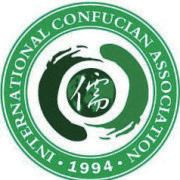
The International Confucian Association was formally established in 1994 in Beijing, China and it has legal status as an international academic community. Aiming at promoting the freedom of human equality, development and lasting peace and prosperity, the Association’s mission is to study and inherit the essence of Confucianism and carry forward its spirit.
In October 1994, the International Confucian Association held its inaugural meeting in Beijing to celebrate the 2,545th anniversary of the birth of Confucius. It was the largest conference on Confucius ever held. Prominent regional leaders, 300 scholars and 1,000 participants attended this important event. Key representatives included Li Ruihuan, one of the seven top leaders of the Chinese Communist Party and Chairman of the Chinese People’s Political Consultative Congress, Gu Mu, the then Honorary President of the China Confucius Foundation, widely credited as a prime architect of Deng’s economic modernisation program, and Lee Kuan Yew, Singapore’s Senior Minister.
Specific responsibilities of the International Confucian Association include: conducting academic research and its evaluation; holding international conferences; holding/hosting academic seminars and lectures; promoting Confucian education; compiling and publishing academic books, periodicals and information; editing and issuing reviews of both the activities of the Association and international academic field; promoting international academic exchange and cooperation; raising funds for international research on Confucianism; exploring other activities which may help the development of Confucianism.
Confucian Institute Headquarters/Hanban

Confucius Institute Headquarters/Hanban, as a public institution affiliated with the Chinese Ministry of Education, is committed to culture Chinese language and cultural teaching resources and services worldwide, it goes all out in meeting the demands of foreign Chinese learners and contributing to the development of multiculturalism and the building of a harmonious world.
As China’s economy and exchanges with the world have seen rapid growth, there has also been a sharp increase in the world’s demands for Chinese learning. Benefiting from the UK, France, Germany and Spain’s experience in promoting their national languages, China began its own exploration through establishing non-profit public institutions which aim to promote Chinese language and culture in foreign countries in 2004: these were given the name the Confucius Institute. Confucius Institutes/Classrooms adopt flexible teaching patterns and adapt to suit local conditions when teaching Chinese language and promoting culture in foreign primary and secondary schools, communities and enterprises. Over recent years, the Confucius Institutes have seen a rapid development and they have provided scope for people all over the world to learn about Chinese language and culture. In addition, they have served as a cultural exchange platform as well as a bridge connecting China with the rest of the world.
World Consortium for Research in Confucian Cultures

In July, 2013, academic representatives from traditional Confucian cultures— China, Korea, Japan, and Vietnam—met at Sungkyunkwan University in Korea and agreed to establish a World Consortium for Research in Confucian Cultures. The inaugural conference of this Consortium was held at the University of Hawaiʻi at Mānoa and the East-West Center in October, 2014. The conference brought together leading scholars from partner universities around the world to critically explore the meaning and value of Confucian culture in a newly emerging world cultural order.
Qufu Chinese Confucius Research Institute
The Qufu Chinese Confucius Research Institute was officially established by the State Council in 1996 in order to preserve the essence of Confucianism and popularize the best in traditional Chinese culture. Designed according to classical Confucian cosmological and architectural principles, the Institute covers an area of more than 95,000 square meters. Its functions include supporting academic research and exchange through publishing works and organizing conferences, exhibiting and preserving Confucian cultural relics in its Confucius Culture Museum, collecting and cataloguing ancient and modern Confucian documents from at home and abroad, liaising with and providing information to both domestic and foreign researchers on Confucianism, and training and supporting scholars in Confucianism.
Beijing Foreign Studies University
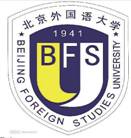
Beijing Foreign Studies University, or BFSU, is a prestigious university in China under the direct leadership of the Chinese Ministry of Education. It is one of China’s top universities listed under the Project 985 and Project 211, both comprising top universities in China. At present, BFSU is one of China’s oldest language universities teaching the greatest number of languages and offering education at multiple levels. Located in the Haidian District of Beijing BFSU is divided into two campuses –the West Campus and the East Campus. In 1941, BFSU started as the Russian Language Team in the Third Branch of Chinese People’s Anti-Japanese Military and Political College. It was later renamed as Yan’an Foreign Languages School under the direct leadership of the Central Committee of the Communist Party of China. After the founding of the People’s Republic of China, the school was put under the leadership of the Ministry of Foreign Affairs. It was renamed as Beijing Foreign Languages Institute in 1954 and merged with Beijing Russian Institute in 1959. Since 1980, the Institute was put under the direct leadership of the Ministry of Education. In 1994, it took on its current name Beijing Foreign Studies University (BFSU). Today, BFSU teaches 67 foreign languages and offers education programs at multiple levels, including doctoral programs in foreign languages and literature, Chinese language and literature, journalism and communication, political science, law, management science and engineering, etc.
In the past 74 years, over 90,000 students have graduated from BFSU. BFSU now serves as an important education base for qualified professionals with language competence who, after graduation, step into different fields and contribute to our country. The University enjoys a high reputation in cultivating diplomatic talents. For example, among BFSU alumni who work or have worked in the Ministry of Foreign Affairs, we have over 400 ambassadors and over 1000 counselors. BFSU is thus known as the “Cradle of Diplomats”.
Asian Studies Development Program, East-WestCenter, University of Hawaii

The Asian Studies Development Program (ASDP) is a national collaborative project jointly sponsored by the East-West Center and the University of Hawai`i. Its mission is to enhance knowledge and pedagogy related to Asia at American colleges and universities,primarily through faculty development programs meeting the needs of teachers and institutions committed to infusing Asian content into the undergraduate curriculum.
The East-West Center is a public, non-profit research and educational institution established in 1960 with a U.S. Congressional mandate to promote better relations and understanding among the nations of Asia, the Pacific and the United States through cooperative study, training and research. To date, nearly 30,000 students and research professionals, primarily from Asia and the Pacific, have participated in Center programs. The Center considers professional development programs for K-12 teachers, college and university faculty, and journalists an integral part of its missions of community building.
The University of Hawai`i is a Research Institution with over 23,000 students and 2,200 faculty on its main campus. More than 300 faculty members are Asia specialists and the University regularly offers more than 600 courses a year dealing with Asia. The Center for Chinese Studies (CCS) at the University of Hawai`i is the largest China-focused National Resource Center in the United States, with 45 fulltime faculty members. The collection of Chinese materials at the University of Hawai’i is among the best in the country, and includes a substantial body of audiovisual material.
ORGANIZERS:
Consortium for Chinese Studies and Intercultural Communication, BFSU The Consortium for Chinese Studies and Intercultural Communication was established by Beijing Foreign Studies University in 2013. Through making a full advantage of its comprehensive strengths in various areas, like designing and offering language courses (especially in non-common languages), carrying out research on Chinese culture and overseas Sinology, promoting the Chinese language in the world, as well as conducting international communication and dialogue, the Consortium aims to increase China’s soft power and raise Chinese culture’s influence in the world.
Office of Confucius Institutes, BFSU

Beijing Foreign Studies University began work on establishing Confucius Institutes in 2005 with the authorization of Hanban, and so far has assisted in establishing 21 Confucius Institutes in higher education institutions in 17 different countries, standing out among its domestic counterparts and demonstrating its mission of “Introducing the World to China” and “Presenting China to the World”. The Office of Confucius Institutes was established in BFSU in May 2007, making it the first Confucius Institute management center in China established within a higher education institution. Its functions include facilitating communication and cooperation between Confucius Institutes, fixing and implementing institutional regulations, staff training and allocation, information collection and analysis, project planning, research into educational methods and policy effectiveness, crisis management and avoidance, etc. Since its establishment, it has successfully provided over 500 deans, Chinese teachers and volunteers to Confucius Institutes around the world.
Center for East-West Relations, School of International Relations and Diplomacy, BFSU
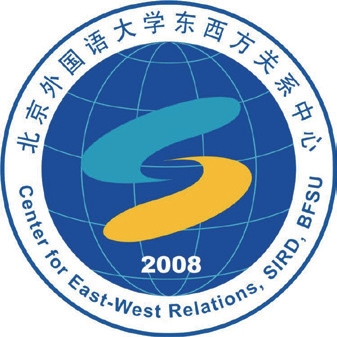
The Center for East-West Relations (CEWR) was founded within the School of International Relations and Diplomacy at BFSU in 2008. CEWR was founded as a hub for academic and cultural activities that encourage nuanced and thoughtful dialogue between cultures East and West.
CEWR MISSION STATEMENT: The peoples of the East and the West will confront unique opportunities and challenges during the course of the 21st century. These will encompass social, political, economic, environmental, scientific and cultural relations. Technological advances have brought formerly remote and isolated regions of the world into close communication, making mutual understanding and accommodation vital to the intercourse of daily life, while the information revolution has brought a growing awareness of the profound diversity and complexity of the world’s cultures. Without knowledge, understanding and sensitivity, contrasting and conflicting world-views can give rise to ethnocentrism and fundamentalism. These can allow suspicion and distrust to politicize cultural, ethnic, religious, and racial differences. Managed with wisdom, however, these same differences can be the inspiration for a more varied, resourceful and harmonious global community. The Center sponsors a number of events and programs to encourage cross-cultural understanding. Besides organizing the Confucian Studies Summer Institute, the Center also sponsors interdisciplinary conferences on philosophy, international relations, business, and politics, for instance, the WE Forum. Past conference titles at the WE Forum have included: “Summit on Global Economic and Cultural Issues: The Global Financial Crisis and its Cultural Implications” (2009), “Confucian Scholarship in the 20th Century and the Renaissance of Eastern Civilizations” (2010), and “Confucianism and the Sinization of Marxism” (2011).
Intellectual Property Publishing House
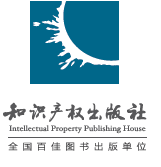
Intellectual Property Publishing House (formerly known as Patent Literature Publishing House) was established in August 1980 which is sponsored and directed by the State Intellectual Property Office. As a national books, periodicals, electronic and internet publishing unit, the House has won many awards and titles, such as the Advanced Unit in Carrying out National Cultural System Reform, National Top Publishing House, National Top 100 Book Publishing Unit, National Digital Publishing Transformation Demonstration Unit and Legal Publishing Unit for China’s Patent Documents. Based on the cultural business of intellectual property, the House has become a comprehensive publishing unit in China with over 30 years of development.
Nishan Birthplace of the Sage Academy

Nishan Birthplace of the Sage Academy is a nongovernmental organization committed to the study and promotion of traditional Chinese culture, especially Confucianism. It is a place for open dialog that seeks to develop and promote traditional Chinese Confucian culture and encourage harmony among the world’s diverse civilizations. The Academy’s motto, “returning to our roots, inspiring innovation,” implies that while committed to the study and promotion of traditional culture, the Academy also looks to the future and seeks to share ideas with and learn from other cultures. The Nishan Birthplace of the Sage Academy was unveiled on October 8, 2008 and immediately began holding academic conferences and teaching programs. The official founding ceremony was held the following year on June 23, 2009. The Academy covers an area of more than 16 acres in Sishui County, Shandong Province, the birthplace of Confucius. These hallowed grounds lie at the heart of ancient Chinese culture, near the homes of Confucius and Mencius and a short distance to the famous Mt. Tai, all within the borders of the ancient state of Lu. The Academy is currently in the third stage of construction which, when completed, will house a library, a conference center, classrooms, an exhibition center and a hotel.
III、Faculty
Roger T. Ames
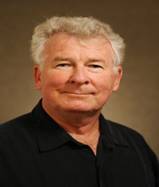
Roger T. Ames is Humanities Chair Professor at Peking University, a Berggruen Fellow, and Professor Emeritus of Philosophy at the University of Hawai’i. He is the past editor ofPhilosophy East & Westand the founding editor ofChina Review International. Ames has authored interpretative studies of Chinese philosophy and culture:Thinking Through Confucius(1987),Anticipating China(1995),Thinking from the Han(1998), andDemocracy of the Dead(1999) (all with David L. Hall), and most recentlyConfucian Role Ethics: A Vocabulary(2011). His publications also include translations of classical Chinese texts: theSun-tzu: The Art of Warfare(1993); theSun Pin: The Art of Warfare(1996) (with D.C. Lau); theConfucian Analects(1998) and theClassic of Family Reverence:The Xiaojing(2009) (both with Henry Rosemont),Focusing the Familiar: The Zhongyong(2001), andThe Daodejing) (2003) (with David L. Hall). Almost all of his publications are now available in Chinese translation, including his philosophical translations of Chinese canonical texts.
Chenshan Tian
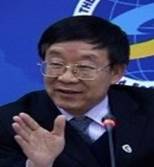
Chenshan Tian earned his Ph.D. in Political Science from the University of Hawaii at Manoa, and he has lived, taught and given public lectures in Hawai’i, in North Dakota, and in China. Professor Tian started his teaching career in China at Beijing Foreign Studies University in 2005 and is currently the Director of the Center for East-West Relations, which operates under the egis of the School of International Relations and Diplomacy at BFSU. In October 2009, Dr. Tian was elected to the post of Director of the International Confucian Association. As a contemporary Chinese-American academic, Chenshan Tian specializes in comparative Western and Chinese political philosophy. Recently, his research has focused on exploring the differences between Eastern and Western world views, alternative ways of thinking, and different forms of scientific understanding. His book,Chinese Dialectics: From Yijing to Marxism, focuses on explaining the fundamental differences between Chinese and Western Marxism. This work makes the simple but profound observation that much of the history of Western thought, including scientific thought, has essentially been derived from, and limited by the Christian faith in a transcendent “God.” This model can be expanded to involve an ontology of Being and Nonbeing, a teleological order from beginning to end, and a plethora of dualisms, such as a final distinction between the natural world and human culture, time and space, mind and body, ontology and epistemology, and so on. Tian advocates an intellectual world derived from theYijing, which seems much more in tune with the mysteries of organic life, with human behavior, and with the nature of material and energy inherent in quantum mechanics and in the relativity theories of modern physics.
Gu Zhengkun
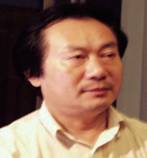
G u Z h e n g k u n , Ph.D. Professor and director of Institute of World Literature at Peking University, President of Peking University Culture and Translation Society, Council Member of National Culture Promotion Society of China, President of Shakespeare Association of China (under Chinese Academy of Social Sciences), Co-President of International Association for Comparative Studies of China and the West. His Research interests are mainly in the areas of comparative philosophy and culture, Shakespeare and Translation. He is the winner of the First Prize for Academic Achievement awarded by the authority of Peking University (1991), the National Gold Key Book Award (1991) andSpecial Government Grant awarded by the State Council for outstanding educational achievement (2002). He is the author, translator and editor of 50 books includingA Companion toMasterpieces in World poetry(1990),LaoTzu: The Book of Tao and Teh(in English, 1993),The Annotated Book of Change (In English, 2014),China and West: Comparative Poetics and Translatology(2003),Linguistic Culturology(2004) ,AComparative Study of Chinese and WesternCultures(2007).Selected Readings in Western Philosophy (in English)(2012) andEssentials of Great Western Ideas(in English) (2014). He has published 150 articles either in English or in Chinese. He worked in UNESCO (Paris) as well as in UN (Geneva) in 1993 and was guest professor of many universities at home and abroad. He is currently the editor-in-chief of the JournalComparative Studies of China and the West.
Robin Wang
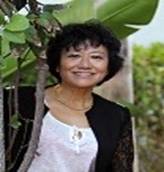
Robin Wang is a Professor of Philosophy and the Director of the Asian and Pacific Studies Program at Loyola Marymount University. She recently finished a book entitledYinyang: The Way of Heaven and Earth in Chinese Culturewhich was published by Cambridge University Press. She is the editor ofChinese Philosophy in an Era of GlobalizationandImages of Women in Chinese Thought and Culture: Writings from the Pre-Qin Period to the Song Dynasty, and she is co-editor ofInternal Alchemy: Self, Society, and the Quest for ImmortalityandReason and Insight: Western and Eastern Perspectives on the Pursuit of Moral Wisdom.
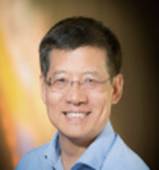
Chenyang Li is a Professor of Philosophyand Chair of the Department ofPhilosophy at the Nanyang Technological University, Singapore. His academicarea includes Confucian Philosophy, traditional Chinese cultural issues, Value theory, and comparative Chinese and Western philosophy. His major works include:ConfucianPhilosophy of Harmony(Routledge, 2014),The Tao Encounters the West:Explorations in Comparative Philosophy(State University of New York Press, 1999),The Sage and the Second Sex(Open Court, 2000),TheEast Asian Challenge for Democracy:Political Meritocracy in Comparative Perspective (with Daniel Bell, Cambridge University Press, 2013),Moral Cultivation and Confucian Character(with Peimin Ni, State University of New York Press, 2014), andChineseMetaphysics and its Problems(with Franklin Perkins, Cambridge University Press, 2015). He also published over a hundred academic papers in various professional journals.
Yao Xinzhong
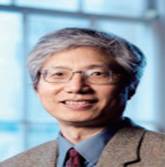
Professor Yao Xinzhong is currently Dean of the School of Philosophy at Renmin University of China, a Changjiang Professor, and the Senior Overseas Expert in Humanities (State Administration of Foreign Experts). His main publications includeConfucian Studies—An Anthology(Routledge, 2010),Chinese Religion—A Contextual Approach(Continuum, 2010),Religious Experience in ContemporaryChina(UWP, 2008),Wisdom in Early Confucian and Israelite Traditions(Ashgate, 2006)Encyclopaedia of Confucianism(Routledge, 2003), An Introduction to Confucianism (Cambridge, 2000),Confucianism and Christianity—A Comparative Study of Jen and Agape(Sussex Academic Press, 2006).
Wen Haiming
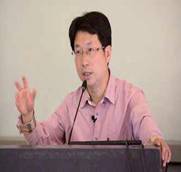
Wen Haiming is a professor of philosophy at Renmin University. He received his Ph.D. In Comparative Philosophy from the University of Hawaii, and his MA from Peking University. His research interests include Chinese philosophy and comparative philosophy. His works includeConfucian Real Meaning Ethics( 儒家实意伦理学),Chinese Philosophy, andConfucian Pragmatismas the art of Contextualizing PersonalExperience and World. HisChinese Philosophyhas been translated into English, French, Spanish, and Arabic.
Hans-Georg Moeller

Hans-Georg Moelleris a Professor of Philosophy at the University of Macau. His research focuses on Chinese and Comparative Philosophy and on Social and Political thought. He is the author ofThe Philosophy of the Daodejing, (in Chinese: 道德经的哲学。北京: 人民出版社, 2010),The Moral Fool: A Case for Amorality,andThe Radical Luhmann,all published by Columbia University Press. He has also written and published many other scholarly books and articles.
Zhang Qi
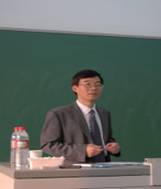
Jim Behuniak

Jim Behuniak is Associate Professor and Chair of the Philosophy Department at Colby College, where he teaches courses in Asian philosophy, American philosophy, and the Philosophy of Religion. He was recently a Fulbright Senior Scholar in the Philosophy Department of National Taiwan University (2014-2015), where he taught seminars in American and Comparative philosophy. He earned his M.A. in 1997 and his Ph.D. in Comparative Philosophy from the University of Hawai’i in 2002. His research focuses in the areas of pre-Qin Chinese and classical American philosophies. He is author ofMencius on Becoming Human (SUNY Press, 2005) and co-editor with Roger T. Ames of 孟子心性之學Studies of Mencius on Feeling and Nature(Social Sciences Academic Press, Beijing, 2004). He has authored several articles in Chinese and Comparative philosophy for edited volumes and journals, such asPhilosophy East and West,Dao: A Journal of Comparative Philosophy,Journal of Chinese Philosophy, andAsian Philosophy. Forthcoming work includes a study of the body and culture in Daoist philosophy, entitled “Animal Body Standpoints in theZhuangzi,” and a projected two-volume work exploring the historical and philosophical relationship between the American philosopher John Dewey and Chinese thought.
Ian Sullivan, Instructor, Seattle University

Currently an Instructor of Philosophy at Seattle University (USA). Received BA in Chinese religions at the George Washington University where he wrote a thesis on Friedrich Nietzsche, Xunzi, and Zhuangzi and their respective approaches to self-cultivation; then studied Chinese philosophy at the University of Hawai’i. His dissertation, “The Ethics of Vital Relationality: Care Ethics, Confucian Role Ethics, and the Challenge to Modern Moral Philosophy,” takes seriously the relationality of persons and draws out the implications this has for ethical and political philosophy. He published an article on Confucianism and Simone de Beauvoir inHypatia, three translations of contemporary Chinese philosophy inFrontiers of Philosophy in China, and several book reviews on Chinese philosophy and culture.
IV、Course Schedule
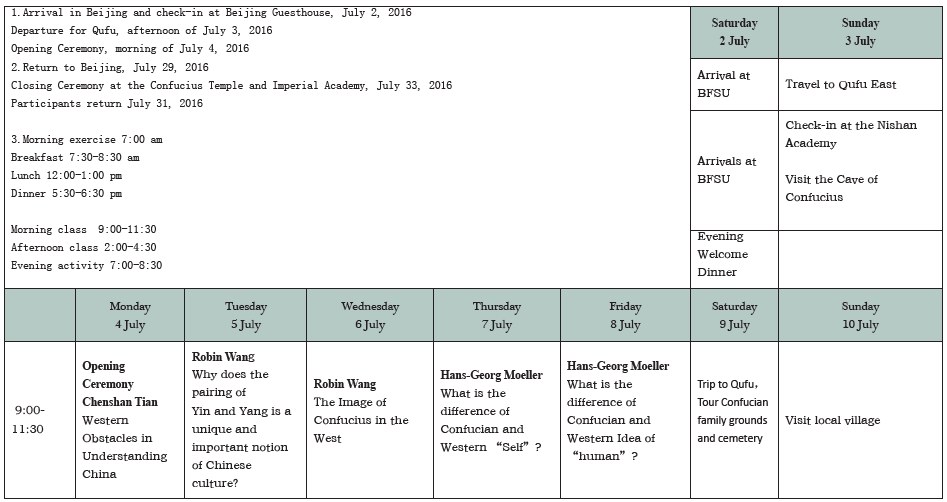
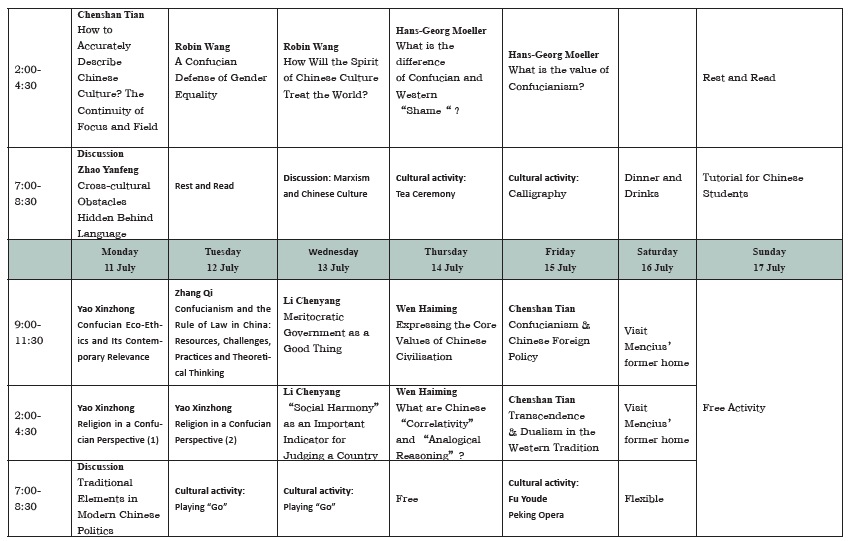
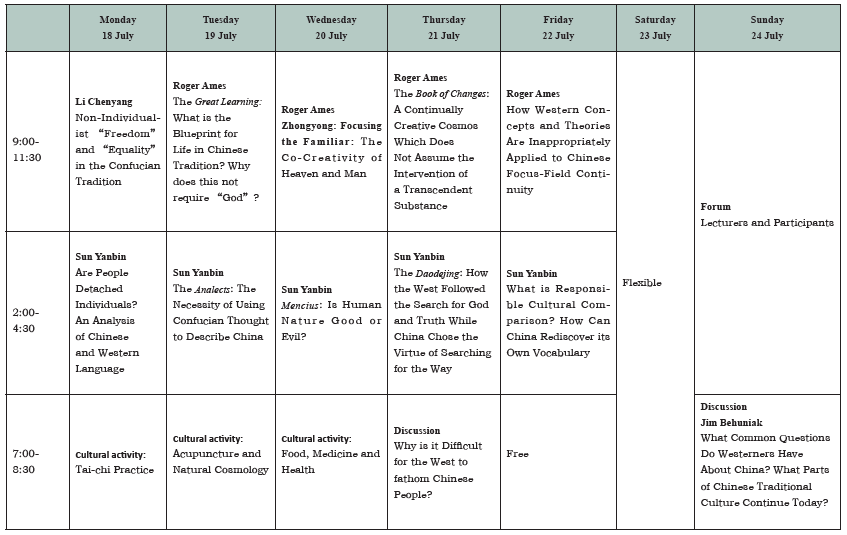
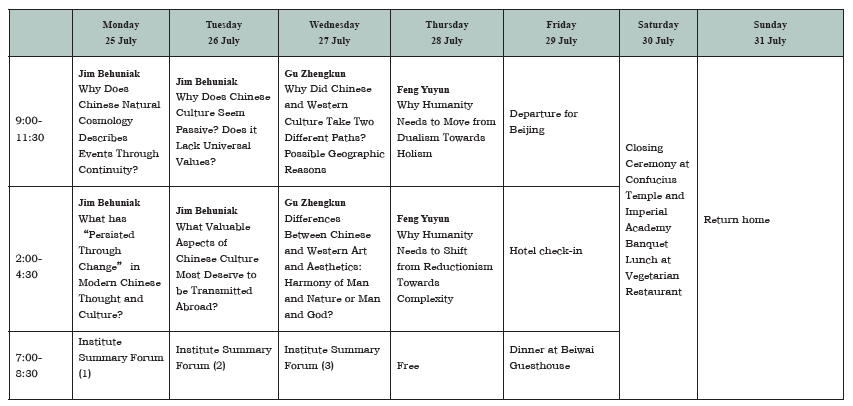
V、Activities
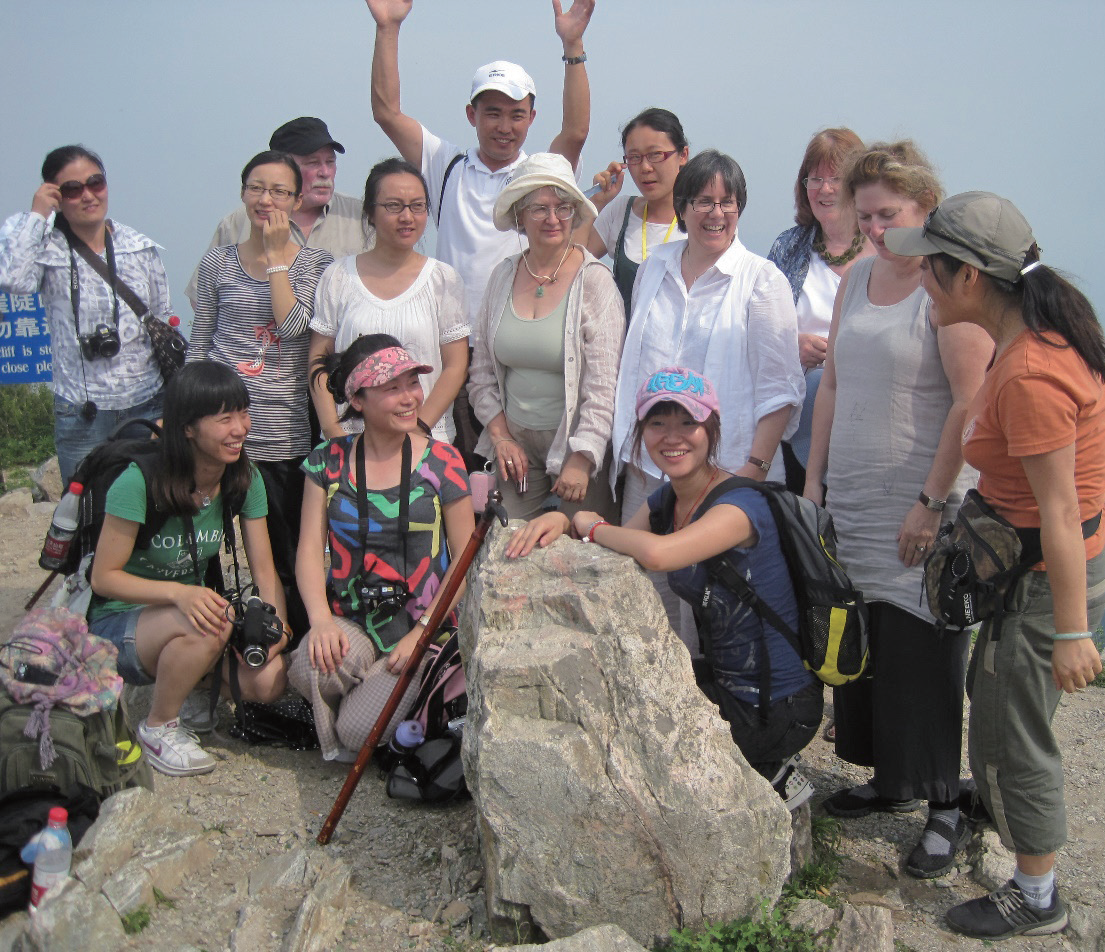
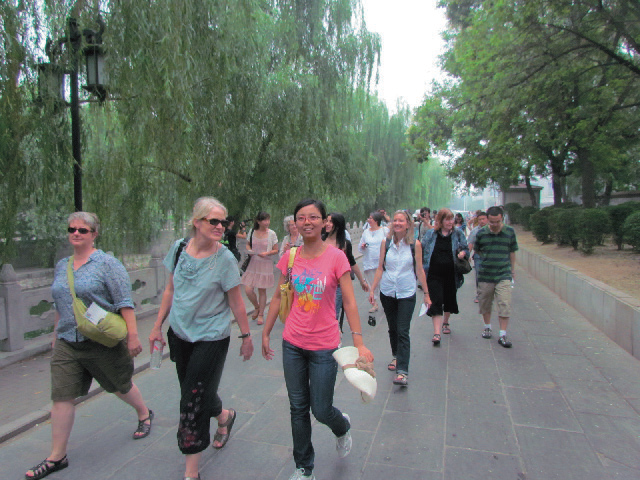
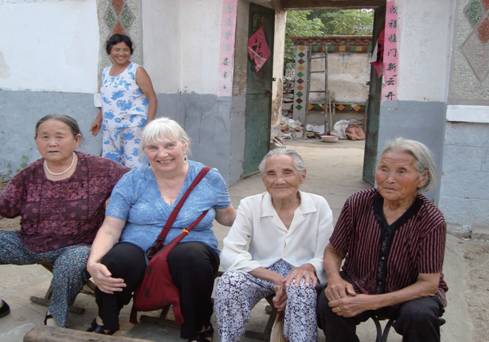
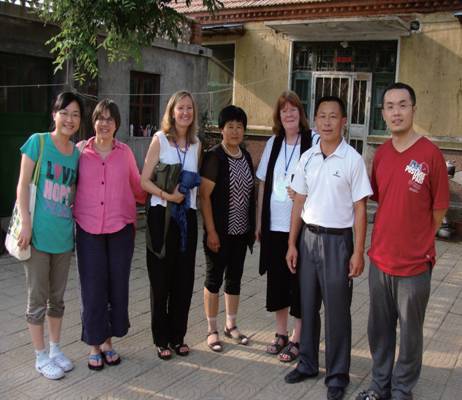
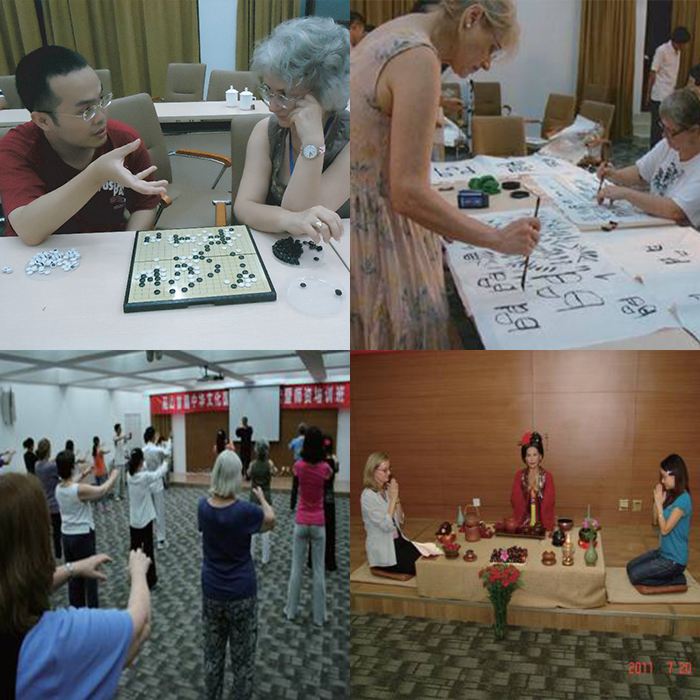
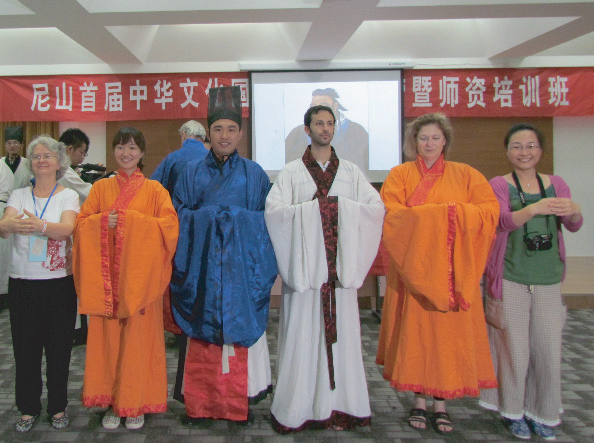
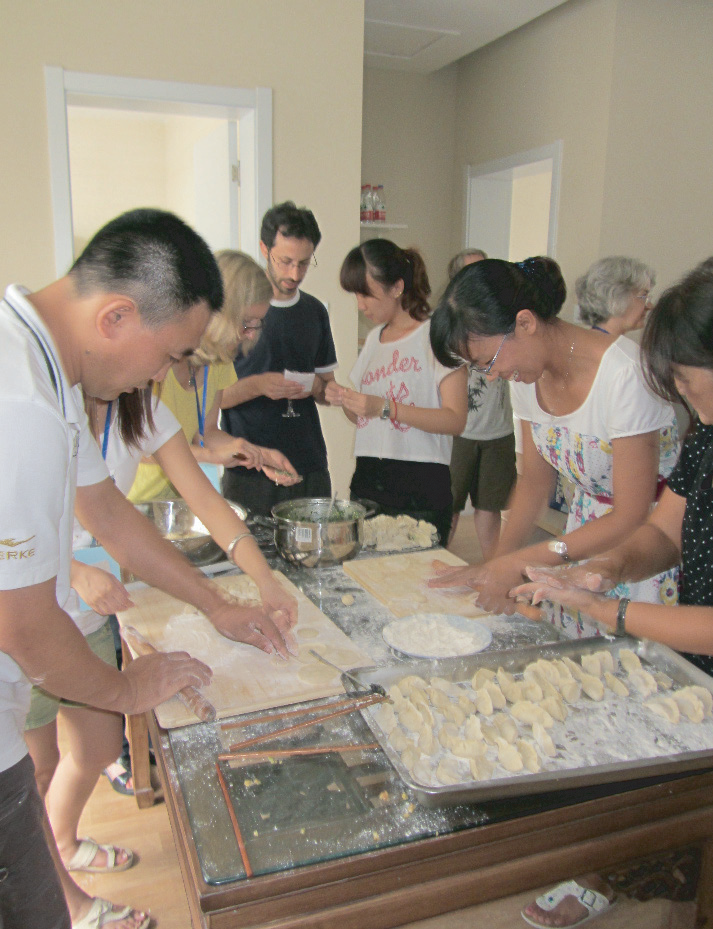
VI、Accommodation
